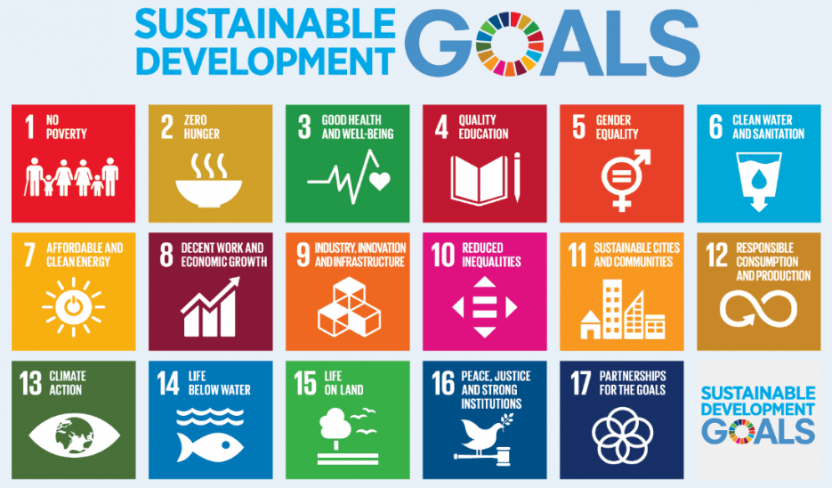2030 Agenda on sustainable development
2030 Agenda for sustainable development and the Sustainable Development Goals (SDGs)
Background
In September 2015, the United Nations and 193 Member States, including Australia, endorsed the Transforming our World: 2030 Agenda for Sustainable Development, with the aim of eradicating poverty, protecting the planet and ensuring equality and prosperity for all.
What is the 2030 Agenda for sustainable development?
The 2030 Agenda consists of a comprehensive, progressive and innovative agenda that responds to the many challenges faced by the world today and into the future. It aims to integrate the social, environmental and economic dimensions of sustainable development, plus the appropriate governance systems to ensure implementation.
The SDGs identify broad goals across many areas covering all facets of sustainable development around the world.
In summary there are:
- 17 Goals, covering goals such as eliminating poverty, hunger and inequality
- 169 Targets, which break down the SDGs into broad outcomes for each goal
- 244 Indicators, which outline how and what is to be measured for each target
Visit the UN's Sustainable Development website for more information.
Australia and the 2030 Agenda
The 2030 Agenda is both a domestic and international agenda. It is well aligned with Australia's interests - especially in promoting regional stability, security and economic prosperity.
Australian Government coordination on implementation of the 2030 Agenda is led by the Department of Foreign Affairs and Trade (DFAT) and the Department of the Prime Minister and Cabinet (PM&C). The 17 SDGs all have a Lead Government Agency responsible for responding to the SDG, with a number of other Government Agencies supporting the lead agency.
Australian Bureau of Statistics (ABS) involvement in the 2030 Agenda
As a National Statistics Office, ABS is engaged with the United Nations Statistical Commission which provides oversight of the official SDG Indicator framework. The ABS has been contributing to the 2030 Agenda since 2015 having provided input to the draft list of SDG Indicators, which led to the initial set of indicators released in 2016.
The ABS has been an active participant in the whole of government approach to the 2030 Agenda, contributing to Australia’s first Voluntary National Review (VNR) and National Reporting Platform.
As well as supporting the Whole-of-Government approach for the SDGs, ABS is a Support Agency for:
- SDG 1 – No Poverty,
- SDG 8 – Decent work and Economic Growth, and
- SDG 17 – Partnerships for the Goals.
For more information about ABS’s work with the SDGs please contact: abs.sdg@abs.gov.au
Image

Description
Sustainable development goals
| 1. No Poverty | 2. Zero Hunger | 3. Good Health and Well-being | 4. Quality Education | 5. Gender Equality |
| 6. Clean water and Sanitation | 7. Affordable and Clean Energy | 8. Decent Work and Economic Growth | 9. Industry, Innovation and Infrastructure | 10. Reduced Inequality |
| 11. Sustainable Cities and Communities | 12. Responsible Consumption and Production | 13. Climate Action | 14. Life Below Water | 15. Life on Land |
| 16. Peace and Justice Strong Institutions | 17. Partnerships to achieve the Goal |
Australia's first Voluntary National Review
Australia delivered its first Voluntary National Review (VNR) on the 2030 Agenda at the UN High Level Political Forum on Sustainable Development in July 2018. The VNR provides an opportunity to highlight Australia's achievements, priorities and challenges – both domestically and internationally – in advancing the 2030 Agenda. Australia’s VNR contains input from a whole-of-government perspective, and also includes information from Business, Non-Government Organisations and Academia, to give a broader and more complete picture of Australia’s work towards the 2030 Agenda.
Australia's SDG National Reporting Platform
Alongside the Voluntary National Review process, the Australian Government developed an SDG National Reporting Platform, which includes the initial set of Australian data against selected SDG Indicators. The sdgdata.gov.au website is a whole of government initiative, funded by DFAT, produced by Australia’s Department of Environment and Energy, in close cooperation with the ABS, and relying on data contributions from across all government agencies. It is the Australian Government’s official National Reporting Platform against the SDG Indicators, and is meant to consolidate relevant Australian data in response to the SDGs. It provides a single point of access to anyone wishing to find out about the status of Australia’s data on each of the SDG Indicators and provides a means of engagement with the data aspect of Australia’s SDG efforts.